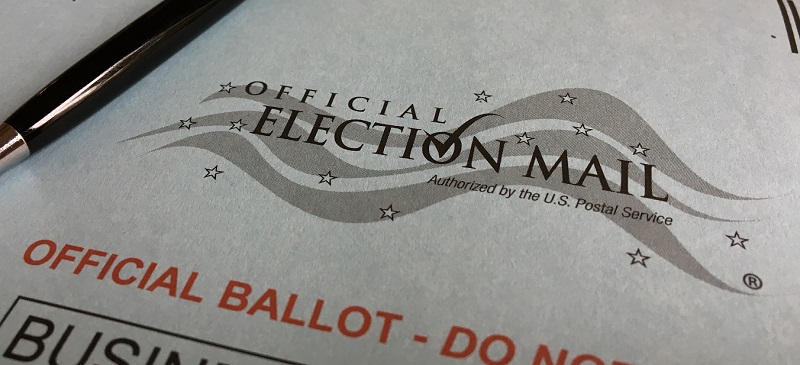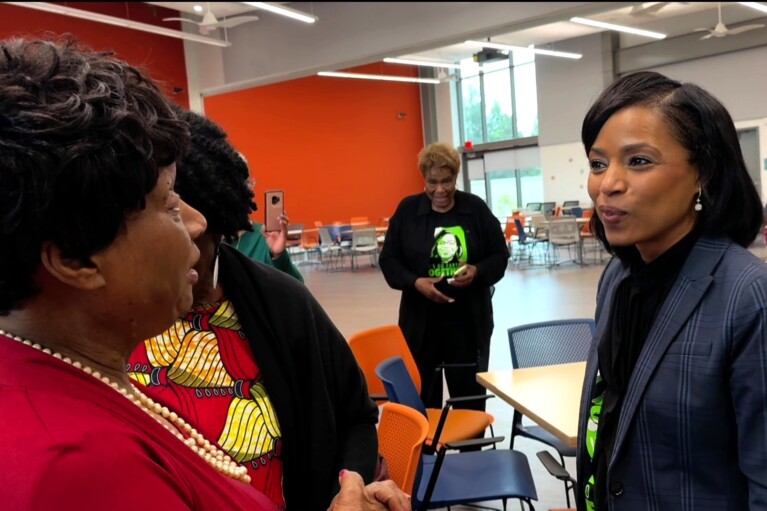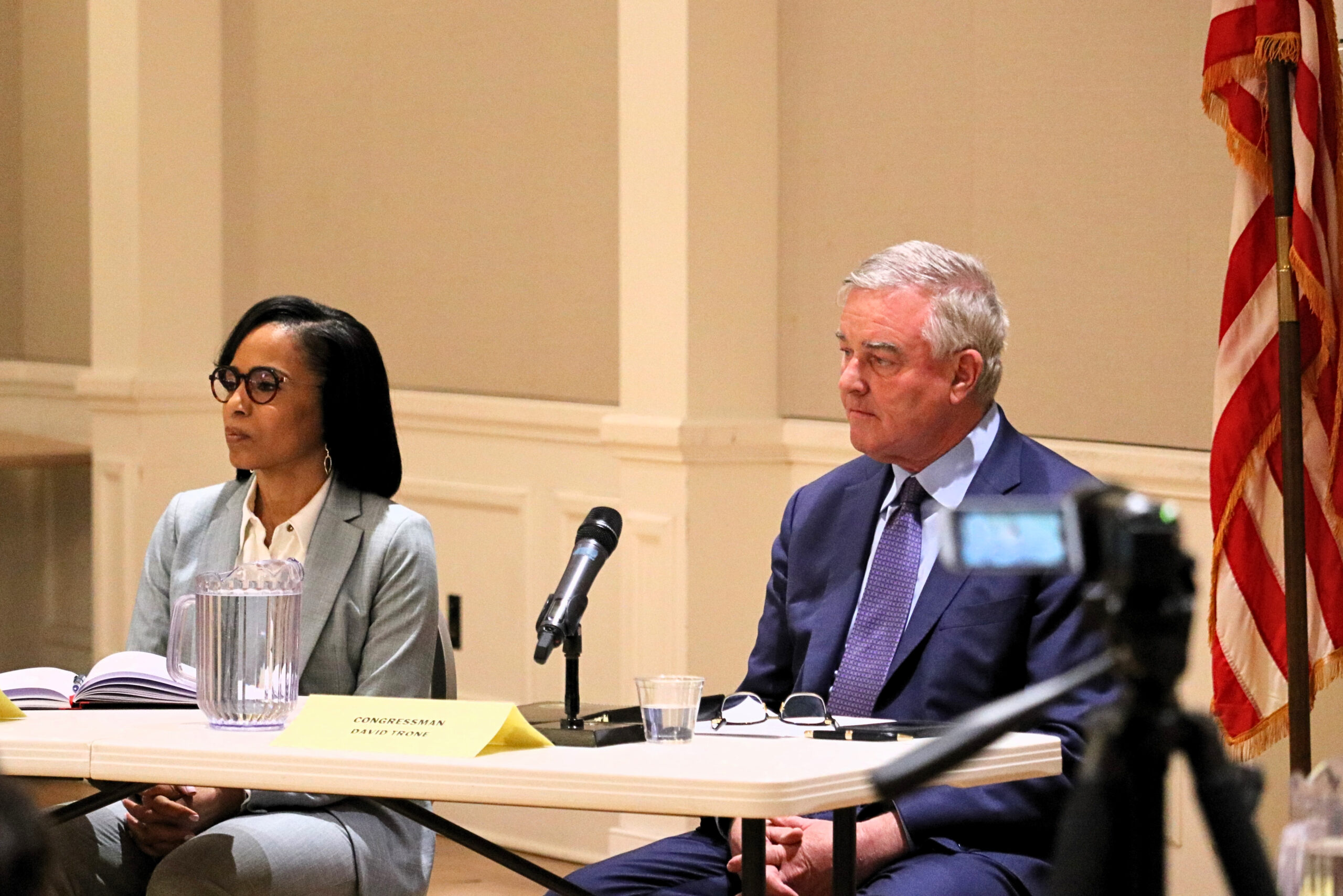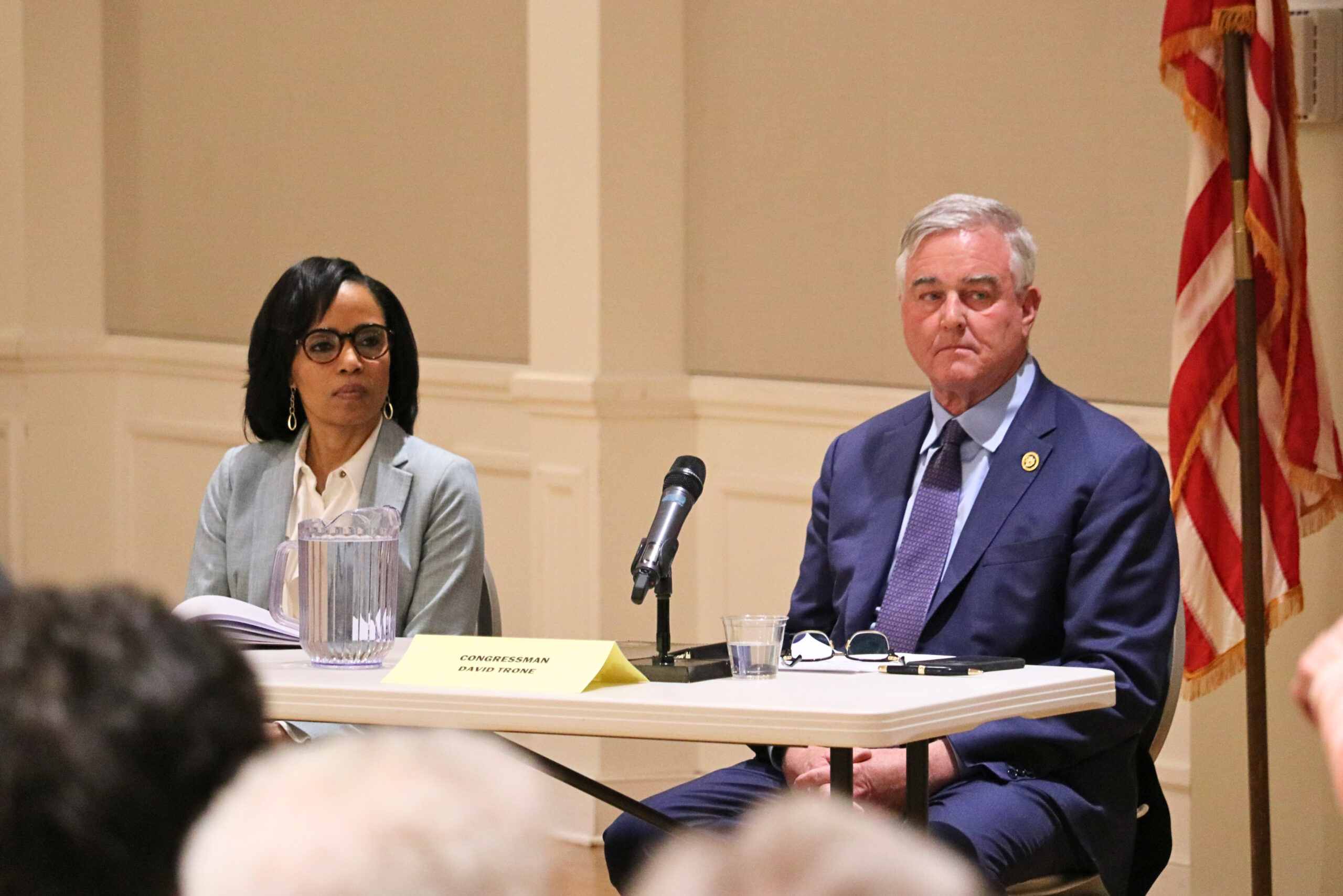Activist Group Looks to Mobilize Current and Formerly Incarcerated Voters

Maryland has a primary election Tuesday, tacking an unproven voting process onto multiple days of civil unrest in the midst of an international public health crisis.
While heads across the globe were reeling and continue to reel from the multiple crises, people for days in Baltimore City and beyond wondered where their ballots were.
Further, in an already hairy primary election cycle, some Marylanders don’t even know that they have voting rights at all.
“It’s kind of alarming that this legislation was passed — what, four years ago, right? — and 40,000 Marylanders across the state have access to the ballot and many of them still don’t know,” said Nicole Hanson-Mundell, executive director of the group Out For Justice.
In 2015, then-state Sen. Joan Carter Conway (D-Baltimore City) sponsored legislation to reinstate voting rights to the formerly incarcerated. The General Assembly made the bill law with a 2016 override after Gov. Lawrence J. Hogan Jr’s (R) 2015 veto.
Individuals convicted of buying or selling votes are ineligible to register.
Hanson-Mundell said that Out For Justice “co-led” the campaign for the legislation, and, as a result, Marylanders who have been released, are held in pretrial detention or are serving time for misdemeanor convictions have access to the ballot.
“Our members were the direct examples of, ‘If this law was passed, it would benefit — even me,’” she said. “At the time, I benefited from this policy.”
Out For Justice is a grass-roots organization led by people directly impacted by the criminal justice system. Their mission, according to Hanson-Mundell, is “to engage, educate and empower” current and formerly incarcerated individuals about policies that impact them and how they can participate.
Recognized by Forbes Magazine as one of eight women who made the biggest impact on the 2018 midterm election, Hanson-Mundell has been mobilizing voters for years now. She describes it as one’s ability to “hire and fire” elected officials.
“If you’re not satisfied with the performance — the job performance of your elected officials, your vote gives you the ability to get rid of them, or to keep them,” she said.
During this unusual election cycle, Out For Justice is helping incarcerated citizens access ballots behind bars by connecting them and their families to the State Board of Elections. After receiving their name, location and identification number, the board has been sending an absentee ballot to their facility in a prepaid envelope.
As it has for everyone else, the COVID-19 pandemic has brought its own set of challenges to Out For Justice’s voter campaign. Where Hanson-Mundell and her fellow advocates formerly employed a “multi-pronged approach” — including going into parole and probation agent offices and even traveling to the Baltimore City Detention Center to register people held inside — they are now heavily reliant on word-of-mouth, yard signs, fliers, fact sheets and registration forms sent to people on the inside, as well as a series of public service announcements that air on WBFF Fox 45 in Baltimore City.
They can also be seen on Facebook and Instagram.
These short videos don’t feature politicians or sports stars. In fact, Hanson-Mundell prides herself on the fact that they rely on “familiar faces.”
“Our public service announcements consist of actual Baltimore voters, actual Prince George’s County voters,” she told Maryland Matters in a phone interview. “The, like, actual everyday people.”
‘Push the message’
Asked why so many directly impacted individuals don’t know about their eligibility, Hanson-Mundell said that part of the problem lies with legislators. She explained that lawmakers are good at shepherding legislation through, but some fall flat when it comes to putting those new policies into practice.
“What’s important about policy is implementation,” she said. “Lawmakers do a really good job passing policy, but they don’t pass it by themselves.”
Hanson-Mundell said that the legislative process involves not only politicians but the advocates behind them who “push the message.”
“Typically the implementation phase calls on the advocate,” she said.
Lawmakers aren’t solely responsible in Hanson-Mundell’s book. She also asserted that it’s a shortcoming of the State Board of Elections, which she said isn’t active enough in extending the ballot to people in prisons.
Asked how many current and formerly incarcerated individuals cast votes in the 2016 presidential and 2018 midterm elections, a representative of the Maryland State Board of Elections told Maryland Matters in a voicemail that the agency doesn’t capture that data when people register to vote.
As has been done throughout the pandemic, Hanson-Mundell compared the state’s corrections population to that of people living in nursing homes.
Maryland election law requires local boards of election to implement plans for registration and absentee voting for nursing home residents, which are to be approved by the State Board of Elections.
“They even admitted that they … didn’t have any type of program that provided them with ballot access,” said Hanson-Mundell.
As it did during the legislative debate, Out For Justice, in conjunction with other direct-impact organizations like Life After Release, the Maryland Justice Project and the Job Opportunities Task Force, lobbied for these expanded rights. Hanson-Mundell called the groups the “expand the vote coalition.”
During the abbreviated 2020 session of the General Assembly, legislation to mandate similar access to the ballot for people behind bars was put forth. The bill, sponsored by Del. Nick J. Mosby (D-Baltimore City), passed in the House but died shortly after reaching the Senate.
To Hanson-Mundell, this is not a “partisan issue,” and while eyeing legislators and the Board of Elections, she also said that the state needs to do its part in educating its eligible citizens of their rights, noting that people with criminal records “could vote either way.”
“This is not a Democrat or Republican issue, this is not a partisan issue. Right? This is simply about educating people of their rights,” she explained.




 Creative Commons Attribution
Creative Commons Attribution